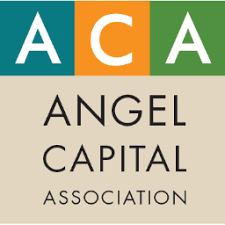Who Are CTAN Members?
The Angels
In general, CTAN Members share the following traits:
- All have been successful in their professional careers, no matter the path or origin.
- An interest in investing in high-potential, innovative startup companies.
- An interest in mentoring those startups to increase their likelihood of success.
CTAN’s membership is extremely diverse. We can classify our Angel Investors into the following groups:
- Former founders of startups who have had successful exits, sometimes multiple times over.
- Former or current C-suite executives from Fortune 100 Companies.
- Managing Partners or Principals at leading Angel Investment Firms.
- Founders of well-known incubators and accelerators around Austin.
- Misc: Investment professionals, real estate professionals, physicians, Academic leaders, etc.
Our members are not limited to the technology industry; they invest in exciting companies in a wide range of industries, including biotech, consumer products, Internet, IT, life sciences, media, software, clean tech, and many others. Call us today!
What Is an Angel Investor?
Most angel investors are successful business leaders or professionals who make significant investments in other companies, usually early-stage startups. They typically invest in businesses within their particular area of experience and expertise.
The most important role of an angel investor is to infuse your startup with cash. But unlike other types of financing — such as bank loans — angel investors can do more than keep your company´s coffers full. Angels often take a hands-on advisory or consulting role in the company, especially when it’s just starting out.
Angels can be invaluable resources that help you connect with future rounds of financing, build your executive team, choose advisory board members, and meet potential business partners.
Keep in mind, however, that an angel investor is just that — an investor. They expect to turn a profit by owning a part of your company. Therefore, not only should you have a plan for providing them with a reasonable return on their money, but you also need to agree on the details of the plan. Typically, a cash return within five to seven years is considered reasonable and is often achieved by selling the company or taking it public.
Read an article from the Wall Street Journal about angel investors here: “What is an Angel Investor?”
“As a new investor, joining CTAN has been the biggest reason I’ve felt confident diving into angel investing. From day one, the members welcomed me with open arms, offered mentorship, and encouraged me to grow, starting with hands-on experience on a deal team during due diligence. That opportunity helped me understand the ins and outs of angel investing right from the start.
Another standout benefit of this organization is the incredible network. I’m constantly impressed by the members’ business acumen and investment expertise. Learning alongside professionals of this caliber is a rare and valuable experience. If you’re even slightly curious about angel investing, I can’t recommend this group enough.”
Justin Garcia - Member since 2025

“I value the connections and friendships I have made with many of the CTAN members-- both recent and long-standing members, who are committed to foster investment and mentorship to further entrepreneurship and innovation.
CTAN has given me the knowledge, confidence and support to start angel investing-- providing a structured, collaborative diligence process for investing as well as an option of a sidecar fund to gain a diversified portfolio of the strongest vetted companies.”
Laurie Cercone - Member since 2017

“The Central Texas Angel Network has allowed me to become a successful angel investor. I make this comment because of the significant training and mentoring provided to me when I first joined CTAN in 2011, the excellent deal flow and the due diligence on companies performed by members in which I have invested in because of my attendance at CTAN events. It has also allowed me to get involved in the Austin entrepreneurial community by working with and mentoring many start-up founders. I have built many personal and lasting friendships because of my involvement with CTAN and its members.”
Rick Timmins - Member since 2010

"CTAN's dedication to sourcing high-quality investment opportunities, coupled with its professionalism and commitment to transparency, makes CTAN a standout choice for investors looking to engage meaningfully in the startup ecosystem. I wholeheartedly recommend CTAN to fellow investors seeking a well-managed and fruitful investment experience. Beyond the investment transactions, CTAN actively fosters a sense of community among its investors. Networking events and forums provide valuable opportunities to connect with fellow investors, entrepreneurs, and industry professionals. This collaborative environment facilitates knowledge-sharing and potential co-investment opportunities."
Joseph Liu - Member since 2015

"As a new angel investor, I'm grateful to be a part of CTAN which is inclusive of new members and eager to mentor. We have access to strong founders and other investors, and the network is positioned very well to make great deals. There are many opportunities to explore within CTAN, and you will get what you put into it and more."
Helen Merlin - Member since 2023




Share On: